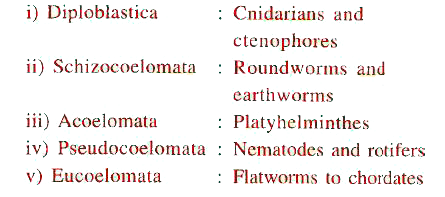Which of the following is correct?
Vinyl chloride is more reactive than ethyl chloride in SN2
Vinyl chloride is more reactive than ethyl chloride in SN1
allyl chloride is less reactive than n - propyl chloride in SN1
allyl chloride is more reactive than n - propyl chloride in SN2
The correct Answer is:D
To solve the question, we need to analyze each of the provided statements about the reactivity of vinyl chloride and allyl chloride in SN1 and SN2 reactions.
1. Evaluate the first statement: "Vinyl chloride is more reactive than ethyl chloride in SN2."
- Vinyl chloride (C2H3Cl) has a double bond, which makes it less favorable for nucleophilic attack in an SN2 reaction due to steric hindrance and the electron-rich double bond. Ethyl chloride (C2H5Cl), on the other hand, is a primary alkyl halide and is more reactive in SN2 reactions. Therefore, this statement is incorrect.
2. Evaluate the second statement: "Vinyl chloride is more reactive than ethyl chloride in SN1."
- In an SN1 reaction, the first step is the formation of a carbocation. Vinyl chloride forms a vinyl carbocation, which is highly unstable due to the sp2 hybridization and the presence of the double bond. Ethyl chloride forms a more stable primary carbocation. Thus, vinyl chloride is not more reactive than ethyl chloride in SN1 reactions. This statement is also incorrect.
3. Evaluate the third statement: "Allyl chloride is less reactive than n-propyl chloride in SN1."
- Allyl chloride (C3H5Cl) forms a resonance-stabilized carbocation upon the loss of the leaving group (Cl). In contrast, n-propyl chloride (C3H7Cl) forms a primary carbocation, which is less stable. Therefore, allyl chloride is actually more reactive than n-propyl chloride in SN1 reactions. This statement is incorrect.
4. Evaluate the fourth statement: "Allyl chloride is more reactive than n-propyl chloride in SN2."
- In SN2 reactions, the nucleophile attacks the carbon atom. For allyl chloride, the nucleophile can attack a carbon that is involved in a double bond (the allylic position), which allows for better orbital overlap (sigma plus pi star). In n-propyl chloride, the nucleophile attacks a primary carbon with only sigma bonds. Thus, allyl chloride is indeed more reactive than n-propyl chloride in SN2 reactions. This statement is correct.
Conclusion:
The correct answer is that allyl chloride is more reactive than n-propyl chloride in SN2 reactions.
- Vinyl chloride (C2H3Cl) has a double bond, which makes it less favorable for nucleophilic attack in an SN2 reaction due to steric hindrance and the electron-rich double bond. Ethyl chloride (C2H5Cl), on the other hand, is a primary alkyl halide and is more reactive in SN2 reactions. Therefore, this statement is incorrect.
- In an SN1 reaction, the first step is the formation of a carbocation. Vinyl chloride forms a vinyl carbocation, which is highly unstable due to the sp2 hybridization and the presence of the double bond. Ethyl chloride forms a more stable primary carbocation. Thus, vinyl chloride is not more reactive than ethyl chloride in SN1 reactions. This statement is also incorrect.
- Allyl chloride (C3H5Cl) forms a resonance-stabilized carbocation upon the loss of the leaving group (Cl). In contrast, n-propyl chloride (C3H7Cl) forms a primary carbocation, which is less stable. Therefore, allyl chloride is actually more reactive than n-propyl chloride in SN1 reactions. This statement is incorrect.
- In SN2 reactions, the nucleophile attacks the carbon atom. For allyl chloride, the nucleophile can attack a carbon that is involved in a double bond (the allylic position), which allows for better orbital overlap (sigma plus pi star). In n-propyl chloride, the nucleophile attacks a primary carbon with only sigma bonds. Thus, allyl chloride is indeed more reactive than n-propyl chloride in SN2 reactions. This statement is correct.
The correct answer is that allyl chloride is more reactive than n-propyl chloride in SN2 reactions.
Similar Questions
Which of the following are correct ?
View SolutionWhich of the following are correct
View SolutionWhich of the following are correct?
View SolutionWhich of the following are correct
View SolutionWhich of the following are correct ?
View SolutionWhich of the following are correct?
View SolutionWhich of the following are correct statements?
View SolutionWhich of the following are correct ?
 View Solution
View SolutionWhich of the following are correct?
View SolutionWhich of the following are correct :
View Solution
